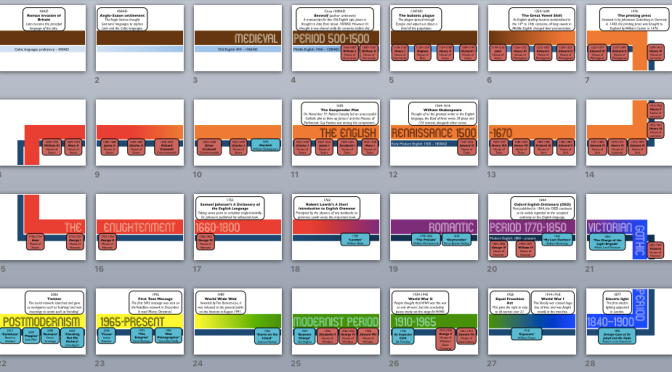One of the lovely things about the online teaching community is the sharing of resources. Teachers have an innate desire to help – not just their own pupils but other teachers too. Most are happy to share freely the resources they have created. We are at heart a collegial profession and the free sharing of resources is really one of our greatest strengths.
And whilst this is a good thing, it has also created a system where The Resource has achieved an elevated status in the currency of teaching.
The problem is that I think that the elevation of The Resource has obscured what should be the gold standard of teaching: subject knowledge.
I have worked in a department where the PowerPoint was king. In that department, all scheme of work planning had to be accompanied by a PowerPoint to share with the rest of the teachers. The premise being that teachers could just deliver your slides without having to spend the time thinking through the process of how they were put together. The Resource there not only trumped subject knowledge, I think it actively inhibited the development of it. It stopped teachers from having to think through the subject, build a bank of knowledge and sift through it to create a resource. But the knowledge that doesn’t make it onto a resource is vitally important: it sits beneath a resource like the larger, submerged part of an iceberg and gives it its power.
A few times I’ve had a go at teaching a lesson using a PowerPoint written by someone else. It’s almost always ended badly. It’s not that it was a badly written set of slides – I am certain that the person who wrote them knew exactly what they were doing and it was well thought through. But the problem is that I didn’t do the thinking. In the author’s hands, I bet the lesson flew. In my hands, it usually fell flat at some point. I had The Resource, but not the knowledge or thinking to teach it. I had, as they say, all the gear but no idea.
Today I saw a perfectly reasonable request on Twitter for help in challenging a class with high level questions and lessons on one of the GCSE Literature texts. Lots of lovely and well meaning teachers offered up resources. I’m not sure that this is the right answer to that request. To me, the best way to challenge a class with high level questions is to the know the text well. The answer to the request should be to improve your own knowledge of the text: read it, annotate it, study it – read critical essays on it. Don’t worry about resources, think about improving your own subject knowledge. Forget the gear, get the idea.
The Resource has achieved an elevated status in teaching. But it is a usurper. Subject knowledge is the rightful king. So excellent a king, that was, to this, Hyperion to a satyr. And subject knowledge is your best bet in understanding that reference.






